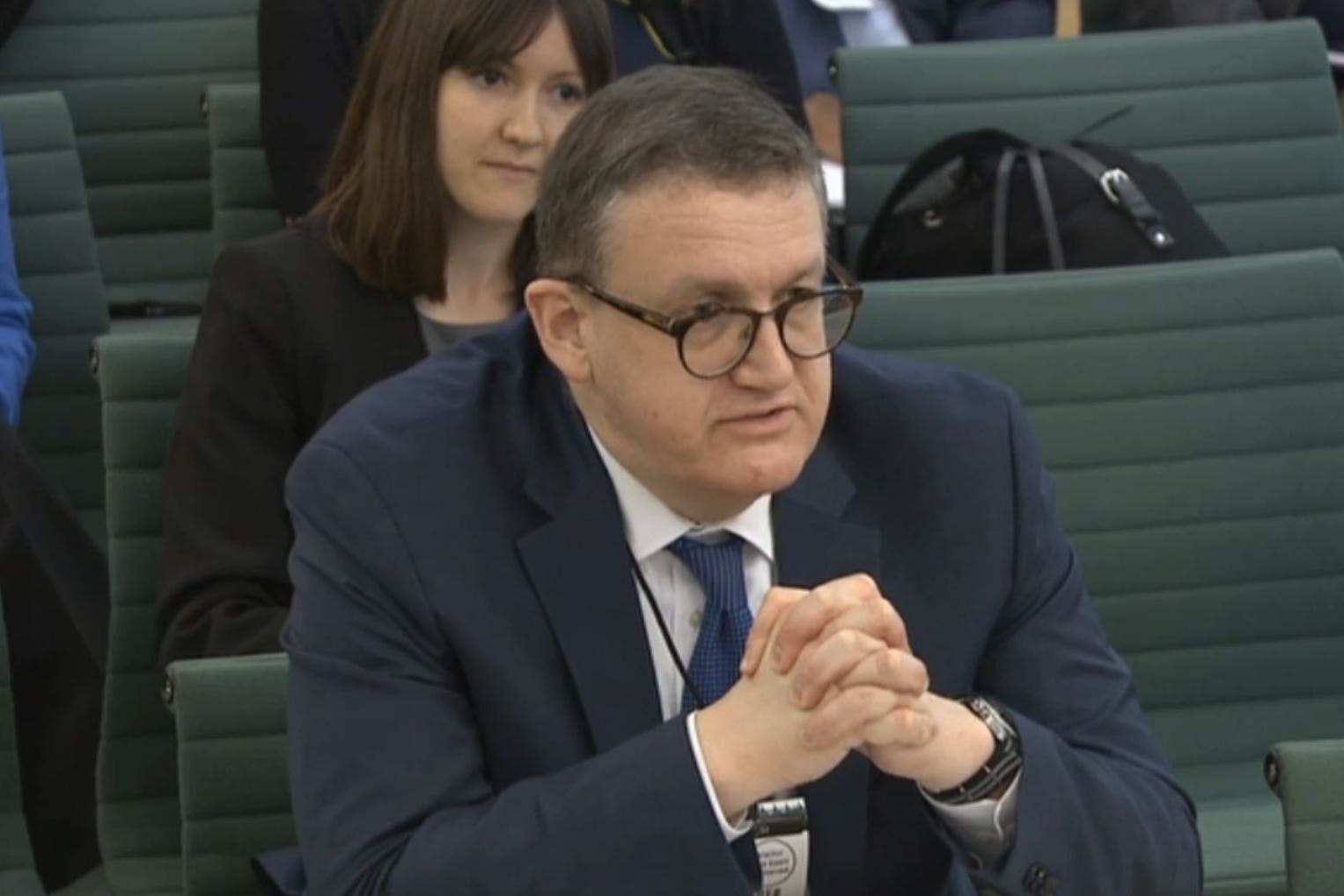Ex-civil service staff chief says No 10 leaders ‘set tone’ for lockdown parties
Rupert McNeil described conduct in Downing Street during the pandemic as ‘extremely disappointing’ and discussed perceptions of the civil service.

Lockdown parties in Downing Street were “exceptionally disappointing” and the leadership in No 10 “set the tone” for behaviour, a former official responsible for civil service staff during the pandemic has told MPs.
Rupert McNeil, who was government chief people officer until April 2022, was questioned on lockdown parties in Downing Street following the Privileges Committee’s finding that Boris Johnson lied to Parliament over the gatherings.
Appearing before the Public Administration and Constitutional Affairs Committee, he said: “That whole episode is exceptionally disappointing about what happened in a very small part of our service that does not reflect the incredible hard work that was happening in many other parts of it.
“It is absolutely clear that in any organisation the tone is set from the very top, whether that’s the political leadership or the management leadership.
“The fortunate thing now… is that at the permanent secretary level in Government you have a group of leaders who are among the best in the world.”
He also addressed criticisms of the civil service as “a blob”, a term which has been used by supporters of Mr Johnson who claim it was responsible for the former prime minister’s downfall.
Mr McNeil said perceptions that the civil service is a “malevolent force” which hinders policy delivery and reform are a symptom of the Government machinery failing to adapt to the challenges of the 21st century.
Mr McNeil suggested frustration among ministers is caused by their struggle to exert control over the complex system covering Whitehall and beyond.
He also highlighted the failure of functions in No 10 to effectively coordinate activity across departments as a root cause of friction.
He said: “One of the sources of frustration is particularly the extent to which from the Cabinet, and as a minister around the Cabinet table, you can then exert control onto this very distributed and complex system.
“If I were to say there was one area in government that needs a good look, it is what happens at the very centre at No 10 and the secretariats and the way in which they operate because they are the programme management office of government.”
Mr McNeil added that Brexit and the Covid-19 pandemic necessitated stronger coordination across the civil service and political leadership.
But he suggested since then “centrifugal forces” had reasserted themselves to loosen central control, giving rise to accusations that the civil service is stifling policy implementation.
We still don't have what is needed to deal with, frankly, the horrendous challenges of the 21st century.
“Although we made great progress during the Brexit and Covid periods in improving capability, we still don’t have what is needed to deal with, frankly, the horrendous challenges of the 21st century. [The system] is not responsive enough,” he added.
When pressed by the committee’s Conservative chair William Wragg on whether he believes the blob is a “myth”, Mr McNeil said: “The extent that one thought there was a blob… it is a symptom of other issues and symptoms which are not surprising in such a large, complex system.”
Identifying what else is lacking in the Whitehall system, Mr McNeil said the Government’s risk management function is too focused on national security and defence rather than domestic issues.
He added: “The minister is responsible for that area and who would be responsible for risk management day-to-day, but then the second line of defence is the people who challenge that. That is a function that is currently missing.”
Questioned on high-profile examples of ministers being found to have bullied staff, most recently former deputy prime minister Dominic Raab, Mr McNeil played down the scale of the problem.
He said: “I think it is an overstated issue. I think if you have people who are confident in their roles and able to assert their position and say that behaviour is unacceptable, you quite quickly see the type of culture you want.”
Mr McNeil added that the distinction between bullying and abrasive behaviour is an “important distinction”.
He said: “I think one of the problems that occurs is that, in many cases, you have people in senior positions – civil servants and ministers – going into these roles who perhaps haven’t had the line management training and experience that they should have done. That would have made them realise that that behaviour is counterproductive.”
Subscribe to Independent Premium to bookmark this article
Want to bookmark your favourite articles and stories to read or reference later? Start your Independent Premium subscription today.
